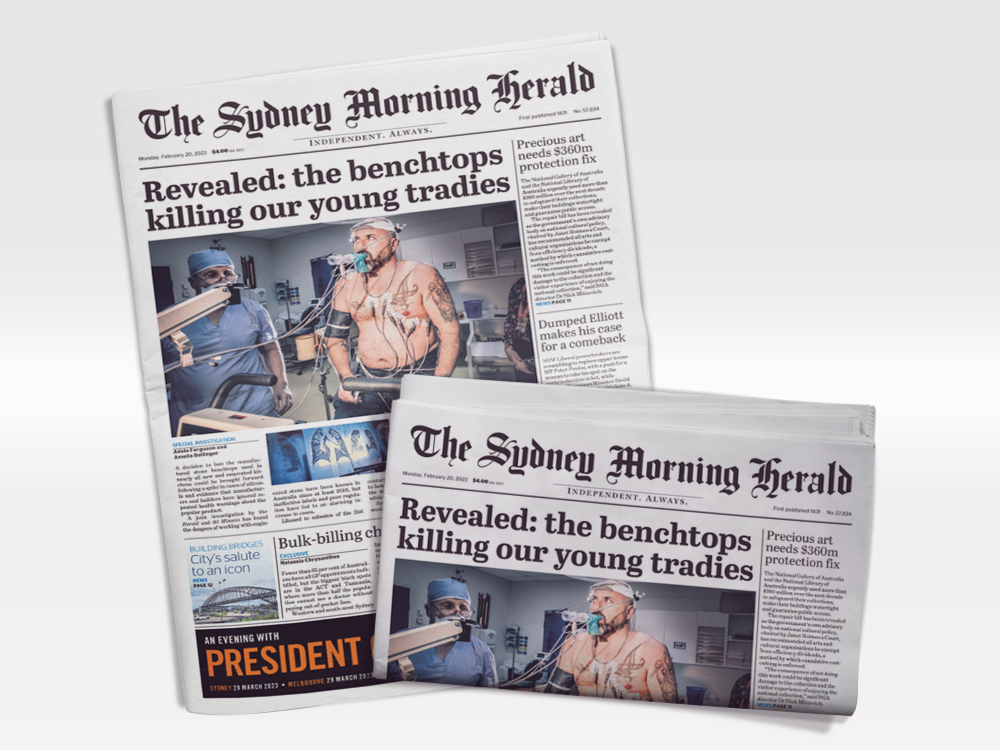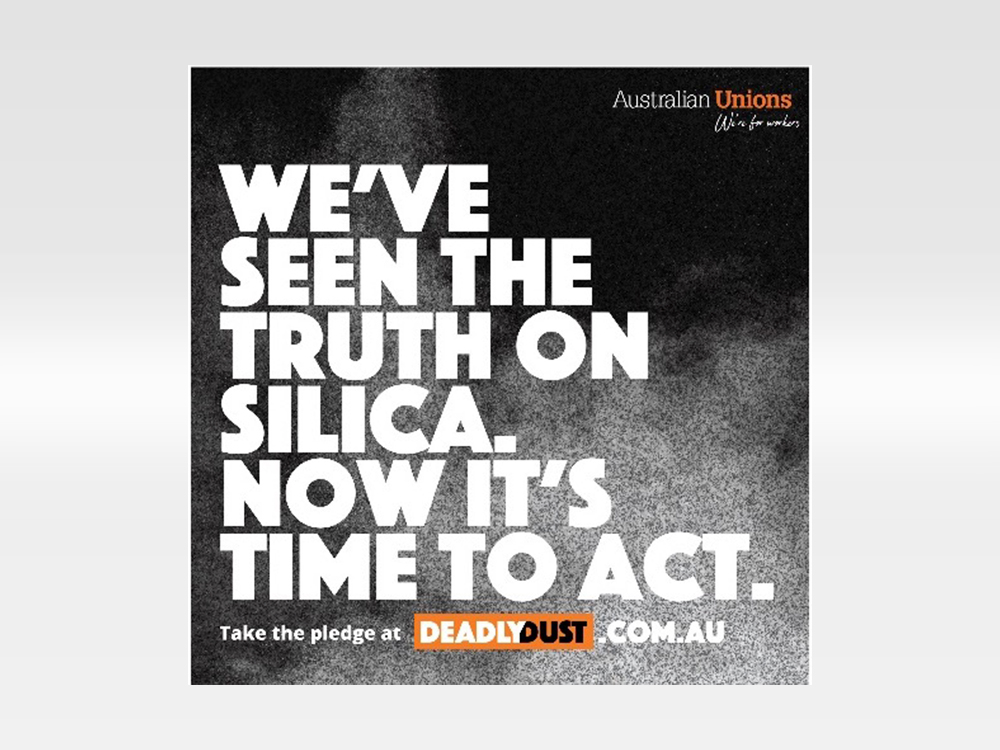Deadly Dust Campaign
Client
The Australian Council of Trade Unions
What we did
Media
Campaign
Digital



Challenge
Two decades on from a ban on deadly asbestos, a new killer is threatening the health and lives of thousands of Australian workers. Silica dust, which is generated in the construction of engineered stone products, such as kitchen bench tops, has been linked to rising cases of silicosis – an incurable and sometimes fatal lung disease. Modelling by Curtin University has estimated that up to 103,000 Australian workers will be diagnosed with silicosis due to exposure to silica dust at work.
Unions have been leading the charge on calls for the government to introducing stronger laws to protect workers, including a ban on the use of engineered stone products. The ACTU hired Shape to coordinate a public relations blitz to highlight their “Deadly Dust” campaign in the lead up to a critical meeting of the nation’s health and safety ministers.
Approach
Shape developed a media plan to support sustained coverage of the issue from the launch of a national campaign on February 20, 2023, through to the ministerial meeting scheduled approximately a week later.
The campaign kicked off with an exclusive story on 60 Minutes, and a press conference was held the next morning. The media plan also included developing a series of media releases and opinion articles highlighting different angles and elevating various expert voices. Radio ‘grabs’ were pre-recorded for mass distribution, and live interviews were booked with breakfast TV and radio shows. We also liaised with medical, health and safety groups and experts to encourage them to add their voices to the call for the ban. In addition, ‘case studies’ of real workers were provided who could talk about the impact of the disease on their lives.
Impact
The campaign achieved wall-to-wall media coverage across seven days, including eight front-page stories in Nine Newspapers and interviews on all major breakfast and evening TV and radio programs. There were more than 3000 mentions of silicosis in the media over the course of the week – an increase of 100,000 per cent on the prior week.
In February 2024, ministers announced a ban, along with significant reforms to protect workers exposed to silica in a range of sectors.
Deadly Dust Campaign
Client
The Australian Council of Trade Unions
What we did
Media
Campaign
Digital

Challenge
Two decades on from a ban on deadly asbestos, a new killer is threatening the health and lives of thousands of Australian workers. Silica dust, which is generated in the construction of engineered stone products, such as kitchen bench tops, has been linked to rising cases of silicosis – an incurable and sometimes fatal lung disease. Modelling by Curtin University has estimated that up to 103,000 Australian workers will be diagnosed with silicosis due to exposure to silica dust at work.
Unions have been leading the charge on calls for the government to introducing stronger laws to protect workers, including a ban on the use of engineered stone products. The ACTU hired Shape to coordinate a public relations blitz to highlight their “Deadly Dust” campaign in the lead up to a critical meeting of the nation’s health and safety ministers.
Approach
Shape developed a media plan to support sustained coverage of the issue from the launch of a national campaign on February 20, 2023, through to the ministerial meeting scheduled approximately a week later.
The campaign kicked off with an exclusive story on 60 Minutes, and a press conference was held the next morning. The media plan also included developing a series of media releases and opinion articles highlighting different angles and elevating various expert voices. Radio ‘grabs’ were pre-recorded for mass distribution, and live interviews were booked with breakfast TV and radio shows. We also liaised with medical, health and safety groups and experts to encourage them to add their voices to the call for the ban. In addition, ‘case studies’ of real workers were provided who could talk about the impact of the disease on their lives.
Impact
The campaign achieved wall-to-wall media coverage across seven days, including eight front-page stories in Nine Newspapers and interviews on all major breakfast and evening TV and radio programs. There were more than 3000 mentions of silicosis in the media over the course of the week – an increase of 100,000 per cent on the prior week.
In February 2024, ministers announced a ban, along with significant reforms to protect workers exposed to silica in a range of sectors.




